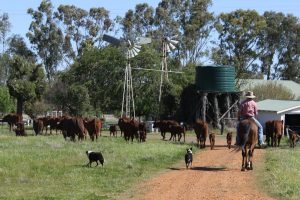You don’t know what you don’t know until you know that you don’t know it
– Donald Rumsfeld
Are the chemicals we use a friend or foe?
I find this is a question that is very hard to answer. You see I grew up on a farm in North-West NSW where we did a lot of work with best practice farming (or what I was told was best practice).
- We always tried to use as little chemical or drenches as possible.
- I ran drench effectiveness trials and always treated stock early in the season to avoid playing catch up when parasite populations exploded.
- Sprayed weeds when they were small to reduce the rates of chemical that were needed
- Always take into consideration withholding periods of both pasture and stock.
- Went to as many field days and talks as I could etc, etc.
These were all good ways to learn as much as I could about new products and new techniques. However, it has left me thinking about who is the driving force behind most of these educational events. All too often it is a big chemical company that is footing the bill for all this information and as much as it is good, they have a huge vested interest.
I recall a comment on a DVD put out by Hugh Lovell and it went something like this;
With the research we are doing we are learning more and more about less and less.
If you think about this comment it’s quite true. It’s a reminder that we have to look at the whole picture, not every little detail which can cause us to lose track. There are lots of connections between different organisms and minerals out there that we do not understand. This poses the question about chemicals; There is a lot of chemicals and additives used in the conventional world, so how do these chemicals react with all other organisms in the environment? Do the Companies check on what affect an Insect Growth Regulator has on other insects or even soil microbes? How do the microbes once affected relate to the uptake of nutrients by plants? How long is the residue of the IGR active in the soil?
Recently I attended a talk on Roundup (Glyphosate), where they presented some of Dr Don Hubers studies on the effect of Glyphosate on the environment. Some of the information was confronting however, it was quite an eye-opening experience. It confirmed what we had been finding through our testing processes; that Glyphosate is causing some big problems in soil health and all forms of life.
Glyphosate has been found to lower the immune system and stop mineral absorption and it is now known that it has a 22.5 years life span in the soil. All this from a so-called “safe” chemical. It was also stated on the day that at this point the only solution to this problem is to feed the system better, now this is a mindset that needs to be questioned because, isn’t it this mind-set that got us into trouble in the first place?
Are these additives helping our soil and are they worth the investment?
The agricultural industry is moving to a system with higher production or larger scaled farms with less labour. The cost of production is always on the increase and the margins being made seem to be getting smaller. How can we afford to keep applying more and more chemicals and fertilisers to correct imbalances? Could these additives be causing some of the issues in the first place? If we keep feeding more minerals into a compromised system does it actually make use of these additives?
With our work, we find that the chemical load in the soil, plants and animals can inhibit health and production.
We have been doing trial work with our farmers.
Testing what is happening in their soil and using energy remedies to release chemicals and improve soil and plant health.
If your stock animals or pastures aren’t in top condition, give us a call and have a chat about how we can help you with cost-effective, natural healing solutions for the sustainable future of your property.
Contact Heal with Ease



